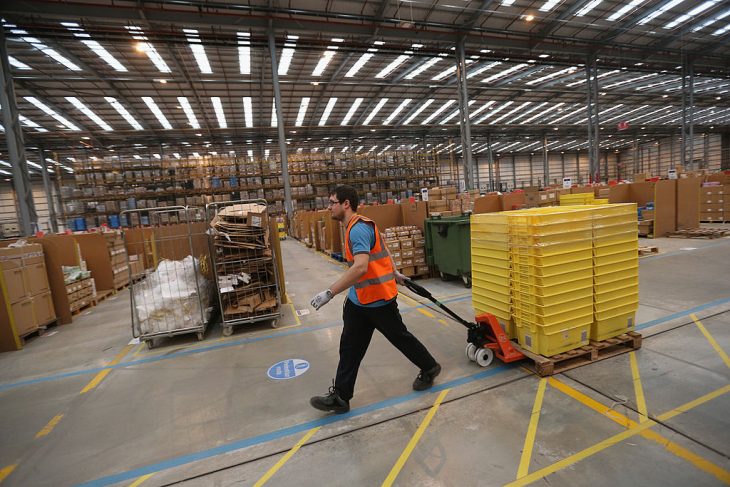More Brits then ever are now in work, with the proportion of the working age population in jobs hitting 74.6 per cent at the end of 2016. Good news such as this about Britain’s job market has become ‘almost mundane’, says the Daily Telegraph. But even in this climate of healthy jobs figures, these latest numbers are worthy of attention. For the Telegraph, this is a ‘vivid reminder that Britain’s flexible labour market has weathered all the recent storms’. Talk about joblessness and unemployment used to dominate the headlines. But no more; ‘the conversation’ now is more ‘about the nature of those jobs’. Talk of the ‘gig economy’ in particular is much discussed. But is this focus causing politicians to lose sight of what really matters? It would be a mistake for the Government to make the job market less flexible, says the Telegraph. Instead, the paper says, ministers shouldn’t make it more expensive to hire freelancers but ‘narrow the gap by making it cheaper to employ staff on regular contracts’. Let’s remember, the paper concludes, that flexibility works for everyone – employers and workers included.
These latest job figures are not welcomed so warmly in the Sun. The paper says the ‘spectacular jobs boon’ hasn’t been to the benefit of everyone. In particular, the Sun says, in the ‘scramble for work’ ‘many Brits have found their pay undercut by cheaper foreign recruits’. The paper says this problem is worsening: the latest figures show the number of Romanians and Bulgarians working in Britain ‘has doubled to nearly a third of a million since controls were lifted in 2014’. For the Sun, this is a situation which cannot continue. And it’s clear that Theresa May is right to want to ‘take back control of our borders’ – even if it comes at the price of leaving the single market. The prize is an ‘immigration policy that works for all Brits’ – not just for the rich, the Sun says.
Immigration isn’t the only factor affecting conditions in the jobs market. The Daily Mail says the decision by the Government to up business rates – a move which has been criticised by retailers who say the tax hike could drive them out of business – is a ‘mad tax’ which risks ‘killing our High Street’. The Mail mourns the loss of the High Street – a place which it says was once ‘full of local character’ and ‘vital small shops’. Now, in its place, there are ‘identikit betting shops’ and ‘coffee bars’, and the rates change will only make things worse, the paper says. Away from the High Street, the Mail also points out the ‘savagely ironic twist’ that the likes of Amazon will be better off after the tax changes, seeing the rates they pay tumble by £148,000. The Mail says this is a ‘perversion’ and calls on Phillip Hammond to ‘announce a freeze on business rates’. If he doesn’t, he risks following in the footsteps of his processors as chancellor, and ‘killing the geese that lay the Treasury’s golden eggs’.
Don’t point the finger at Amazon, urges the FT, which says the changing face of our High Streets isn’t the online company’s fault. Instead, the paper says, if you want to cut the number of estate agents and coffee shops filling up town centres, the best bet is ‘devolving greater planning power to councils’. The paper also says that a simple cut in business rates isn’t the golden bullet which it’s being touted as. After all, if the Government cut rates, ‘landlords would still set rents at the level the market would bear, and keep more of the proceeds for themselves.’ A change in rates would also have little impact on a multi-billion company like Amazon, the FT says. It’s clear, the paper says, that the reason the company pays so little comparatively in business rates is that ‘it uses less property’. What’s more, the FT argues, ‘it is surely a good thing that Amazon is placing its sheds in low-rent, low tax areas’. After all, it’s in exactly those places that jobs are needed most.







Comments